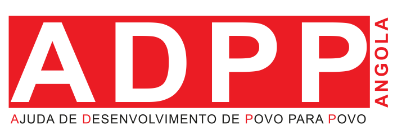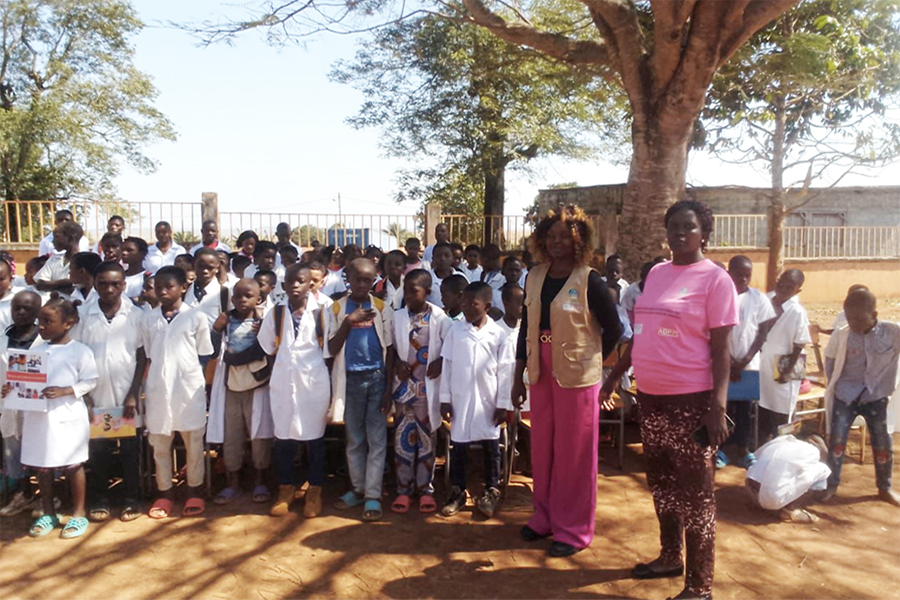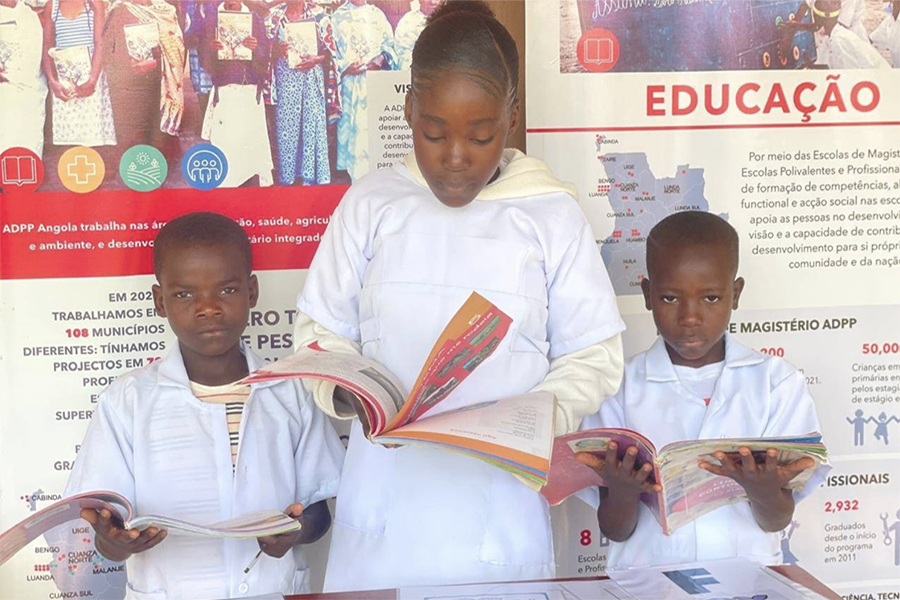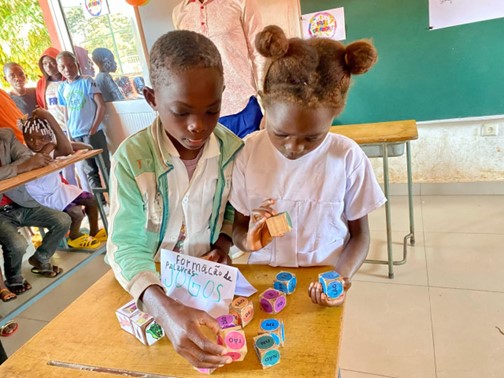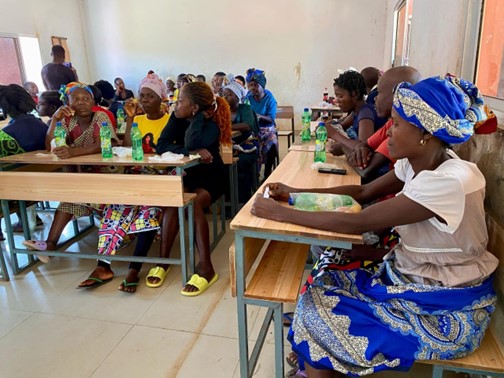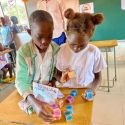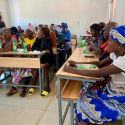Two educational sessions on gender brought together students and teachers for open conversations around health, growing up and personal responsibility, fostering an inclusive and engaging learning environment.
In Ambaca (Cuanza Norte), Primary School No. 208 hosted a session on early pregnancy, attended by 75 students (38 girls and 37 boys). The discussion encouraged reflection on informed choices during adolescence.
In Calandula (Malanje), the focus was on puberty. A talk with 5th and 6th grade students at 1.º de Maio Primary School reached 97 pupils (54 boys and 43 girls), who explored the physical and emotional changes of adolescence.
These sessions, held as part of the Improving the Quality of Education in Rural Angola project, support students’ holistic development, and promote gender equality — in alignment with national education priorities, project commitments, ADPP’s mission and the Sustainable Development Goals.
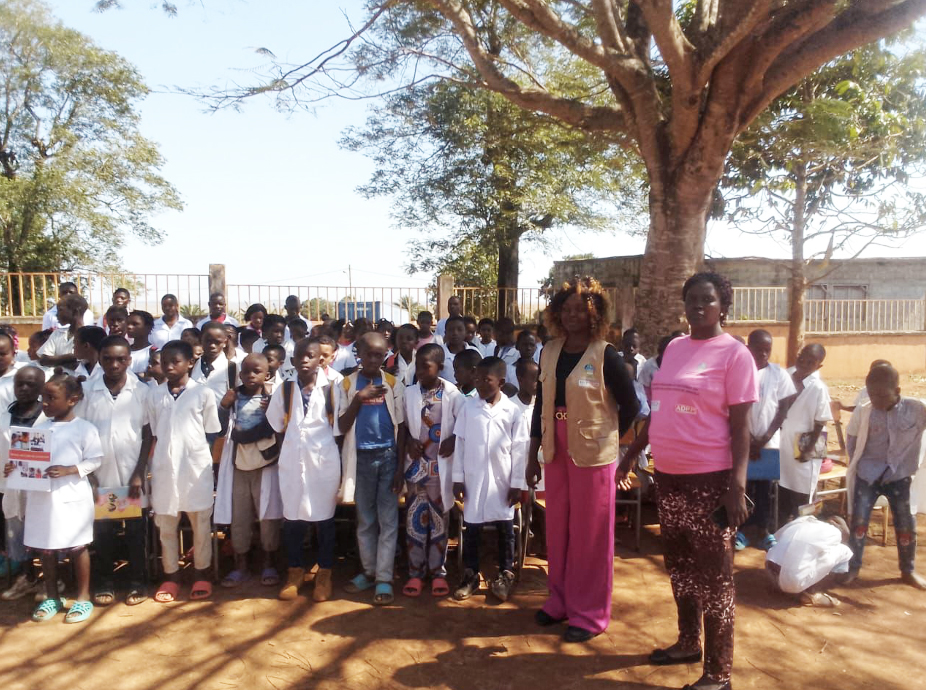
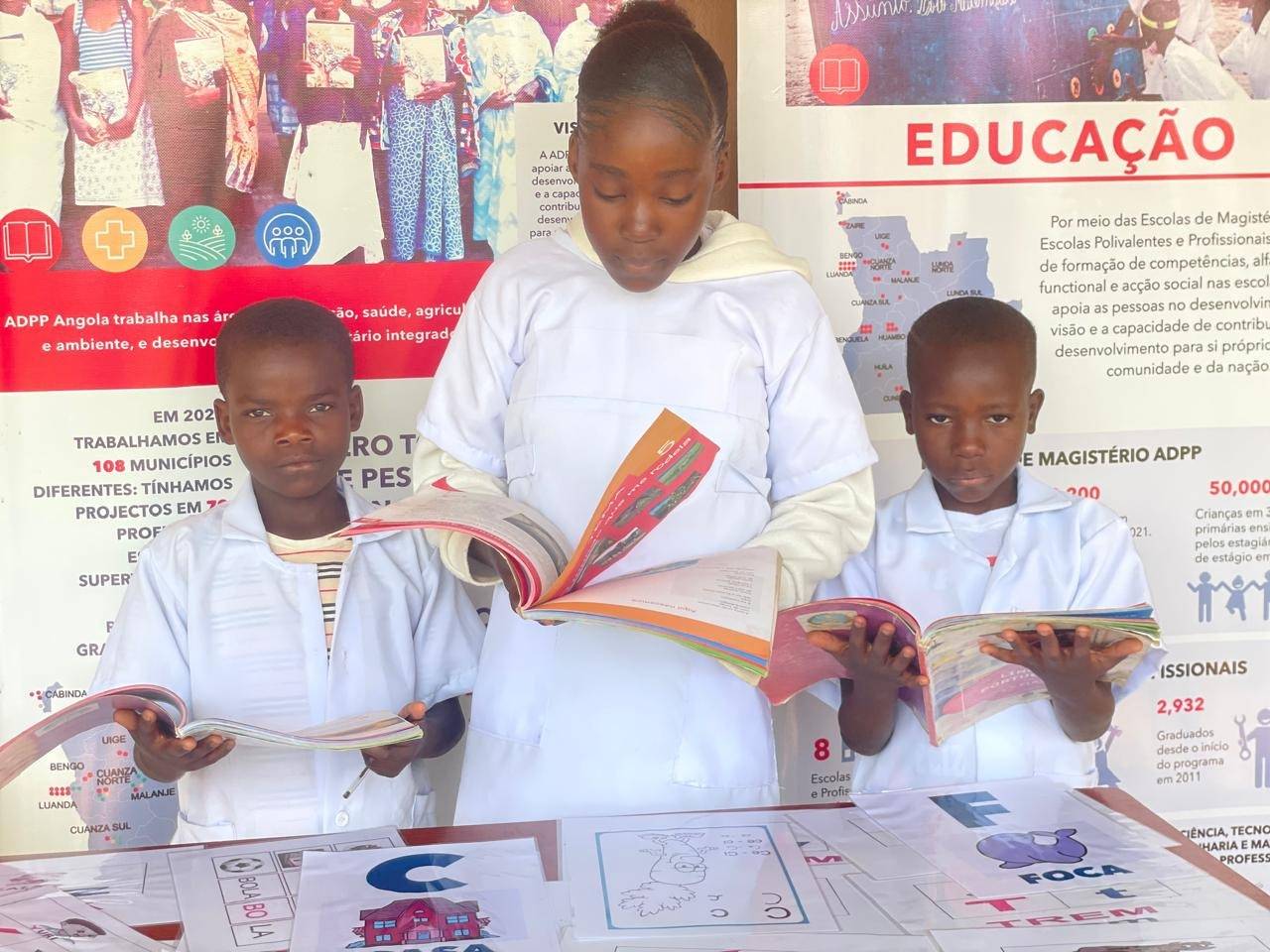
The children from the "15 Steps to Reading and Writing" class at Caua Primary School participated enthusiastically in the Provincial Exhibition Fair, held on June 7 in Uíge Province.
During the fair, the students represented the municipality of Negage, showcasing the main achievements made through the Project for Improving the Quality of Education in Rural Areas of Angola, with a focus on the pedagogical approach of the 15 Steps to Reading and Writing.
The class’s presence was marked by dynamic presentations that demonstrated the project’s impact on children’s learning — reflecting a collective commitment to more inclusive, participatory, and effective education in rural communities.
This project is funded by the Republic of Korea through the Korea International Cooperation Agency (KOICA), in partnership with the Ministry of Education and implemented by ADPP Angola.
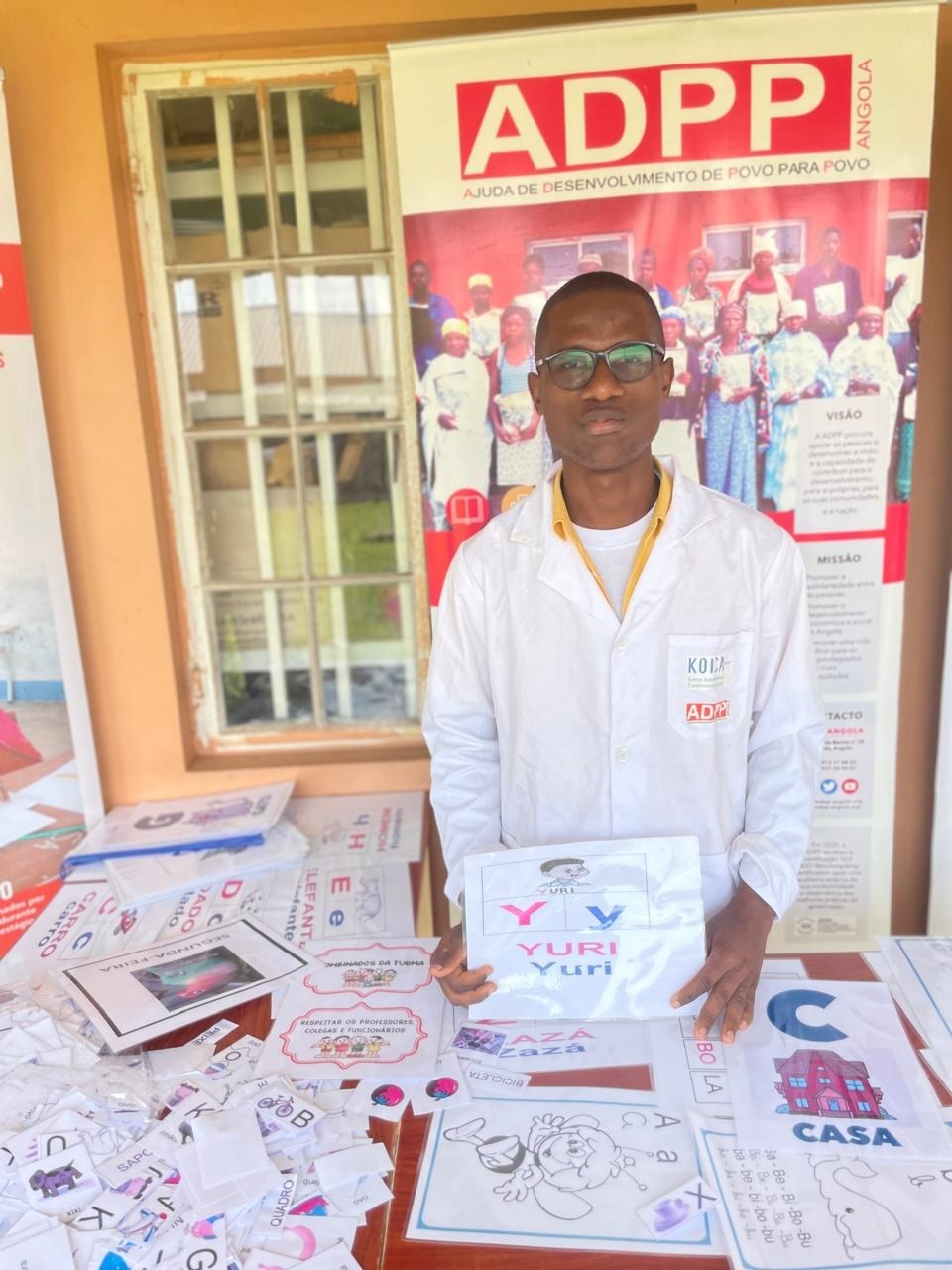
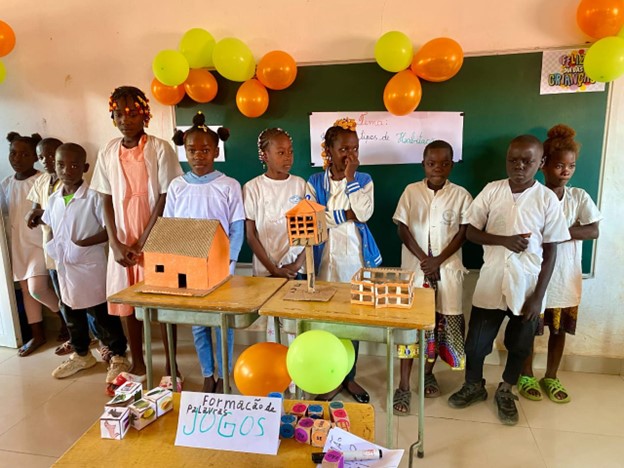
As part of the Improving the Quality of Education in Rural Angola project, Class 4A of Complexo Escolar No. 39 in Kitexe, Uíge province, marked International Children’s Day with a special event that brought together students, teachers, and parents.
The celebration gathered seven teachers — including the school director and deputy — along with 27 parents and guardians and 70 students for a joyful moment of sharing. The children showcased their progress in Portuguese through reading and writing competitions, word and syllable games, and a theatrical performance that highlighted the vital role families play in their children’s education.
The event reflected the project’s ongoing commitment to delivering quality education through strong community engagement.
This project is funded by the Government of the Republic of Korea through KOICA and implemented by ADPP Angola in partnership with the Ministry of Education.
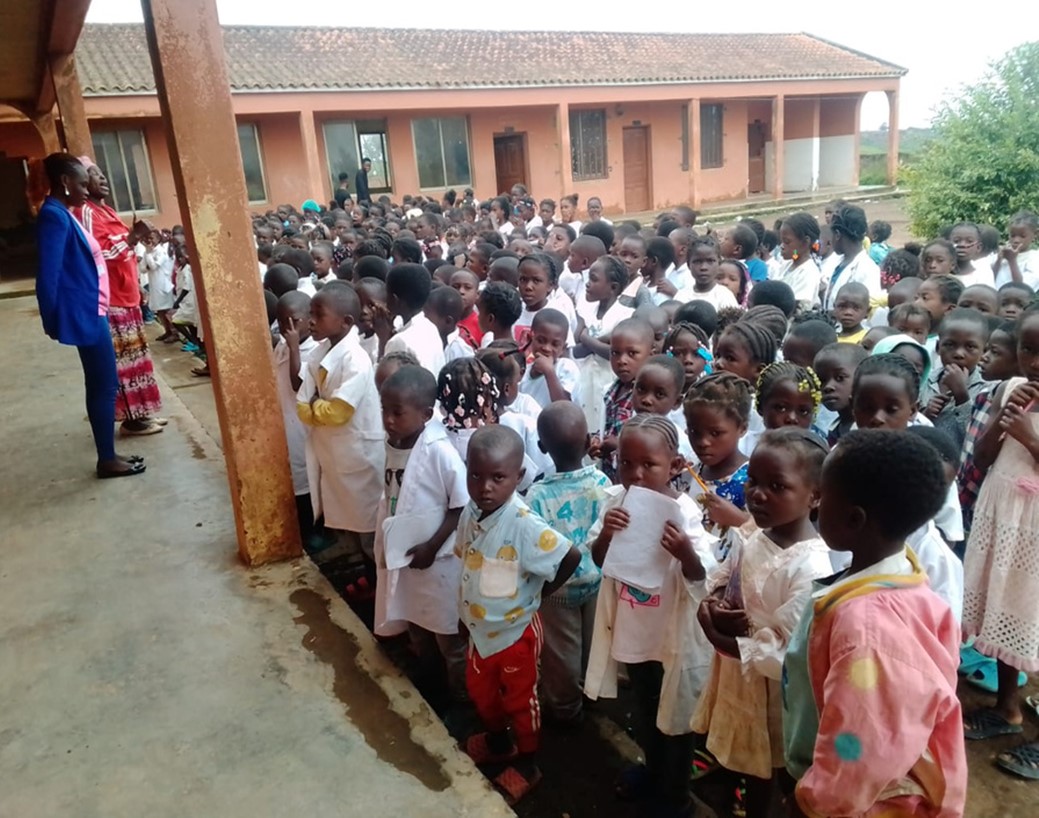
On February 17, 2025, a cholera prevention awareness session was held at Primary School No. 1 in the town of Mucaba, Uíge Province. The session was part of the school’s ongoing health education efforts for the academic year, aimed at increasing awareness and protection against communicable diseases.
A total of 91 participants took part in the session, including 86 students and 5 teachers. Among the students, 60 were girls and 26 were boys, highlighting the strong engagement of female pupils in the activity.
The session covered key topics such as how cholera is transmitted, personal and environmental hygiene measures, and the importance of drinking safe water. The goal was to equip students with practical knowledge they can apply in daily life to help prevent illness.
Given the current cholera outbreak in the country, it is especially important that children not only understand these health messages but also share them with their families, contributing to broader community health and safety.
For more information, subscribe to our newsletters or browse past editions here.
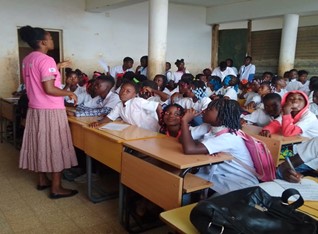
As part of the Gender activity under the Improving the Quality of Education in Rural Areas of Angola project, an educational session was held in March 2025 at Primary School No. 47 Sambizanga, in Cazengo municipality, Cuanza Norte province.
The session focused on personal hygiene, encouraging healthy habits among students. Through both theory and hands-on demonstrations, pupils learned the importance of daily hygiene and were guided step-by-step on proper toothbrushing techniques.
A total of 123 students took part in the activity, which highlighted how simple daily actions — like washing hands or brushing teeth — can have a big impact on children's health, self-esteem, and overall well-being.
For more information, subscribe to our newsletters or browse past editions here.

